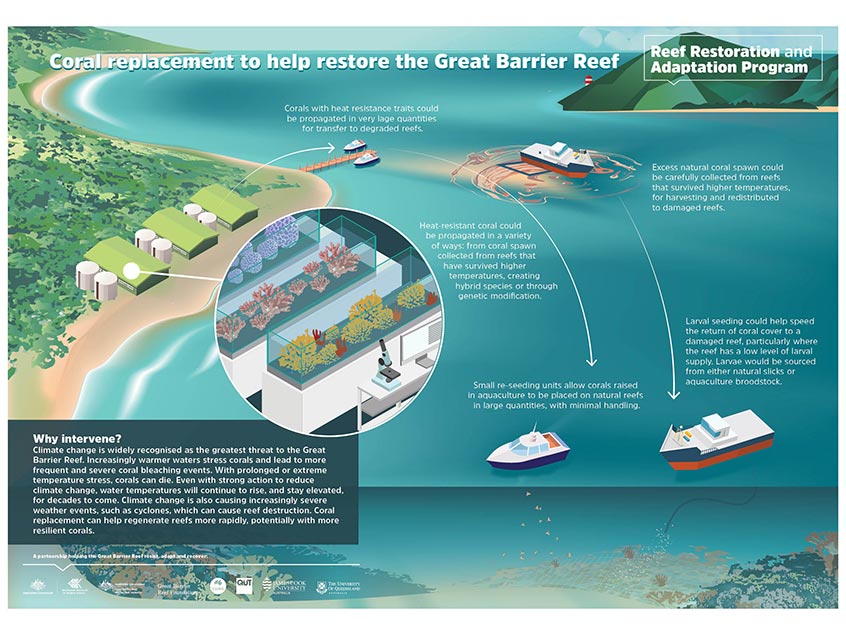Seeding enhanced corals bred from existing stock with automated aquaculture
Functional objective:
Enhanced coral performance
Delivery method:
Seeding enhanced corals bred from existing stock with automated aquaculture
Deployment scale:
Medium (20 or more reefs)
There is significant genetic diversity within and among populations of many coral species on the Great Barrier Reef.
Enhanced coral performance interventions are also known as ‘assisted evolution’ as they aim to facilitate the sharing of this genetic diversity; to transfer desirable traits – such as heat tolerance, growth and fecundity – between coral species and populations.
Corals that survive mass-bleaching events, or those that thrive on naturally-warm reefs, are likely to possess heat-resistant genes.
This potential intervention aims to enhance the adaptation of local populations to expected future conditions by moving naturally warm-adapted corals (adults, fragments, spawn, larvae or juveniles) to reefs with less heat-resistant individuals using automated, mass-produced corals in shore-based aquaculture.
These corals could be propagated either sexually (through coral seeding) or asexually (harvesting coral fragments), using local brood stock.
The young corals, attached to a small device or in small fragments, would be deployed from the surface using automated systems on barges and small vessels, to seed reefs.
This approach would amalgamate current aquaculture and automation technology with automated deployment methods.
It would require measures to ensure the introduced corals did not harm the local population.
This captured coral stock may receive additional treatments such as:
- microbial treatments, such as probiotics and manipulating the symbiotic organisms such as microalgae to enhance the performance for future conditions
- hardening (exposure to stressful environmental conditions to induce physiological responses that toughen corals).
The aim is to increase the number of enhanced corals recruiting into reef populations.







